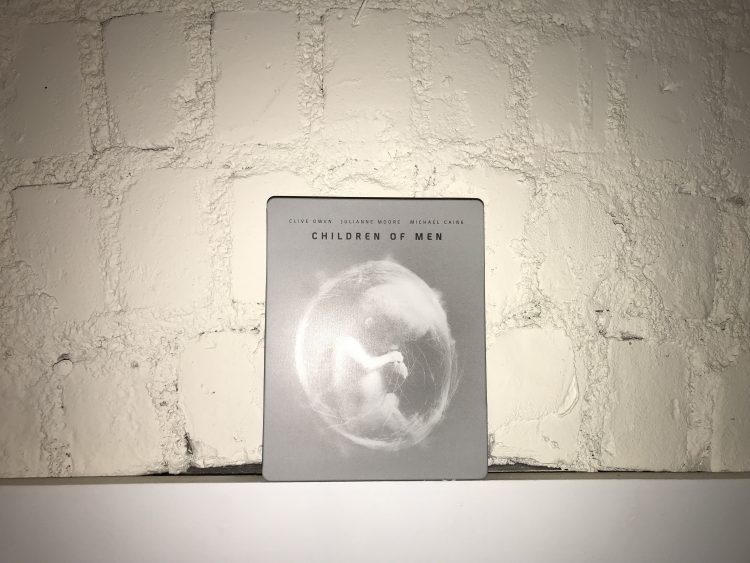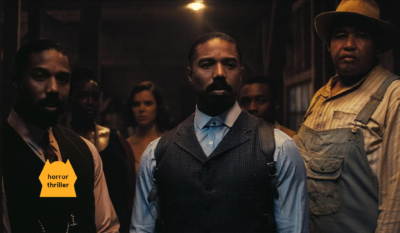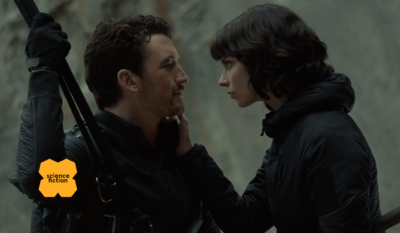Children of Men is a prescient look at a dystopia where no new children have been born in 18 years, leading to chaos in society


Children of Men is perhaps the definitive movie of the first two decades of the 21st century as a prescient look at our potential future.![]()

What's stunning about Alfonso Cuarón's 2006 film Children of Men is that it has somehow become more relevant as time has gone on. In a world where the Syrian refugee crisis, Brexit, and Donald Trump's war on immigrants all occurred within years of each other — and are all probably connected — Children of Men is hauntingly feasible in its portrayal of the world in 2027.
Though the film was commercially a failure, its enjoyed a critical admiration that resulted in it becoming one of the most-praised films of the 2000s. Now, Best Buy has released it as an exclusive limited-edition Blu-ray steelbook with updated artwork, which is why I'm taking a look back and parse out why it's one of the best films of the 2000s.
Children of Men builds its world like many dystopian films have in the past. If anything, its exposition-heavy first 25 minutes are a little heavy-handed in its setup. However, that allows the rest of the film to be nothing but a forward and propulsive narrative that takes
💌 Sign up for our weekly email newsletter with movie recommendations available to stream.
ADVERTISEMENT
In a crowded deli, people stare on in disbelief at a news broadcast announcing that the youngest person in the world known as Baby Diego has died. That moment is a watershed moment for the entire planet since it's been 18 years since a baby was born. This global infertility has driven civilization to the brink of collapse.
Few countries have a functioning government. The UK is one of the countries to maintain some type of stability. Although, with the influx of refugees, called
The parallels to today are astonishing. Of course, the tangible cause of the rampant xenophobia we're seeing in the US and the UK today isn't a catastrophic world event like in “Children of Men”. However, the root of the issue in both the film and real life is fear. In the film, it's the fear of extinction.
ADVERTISEMENT
Without the ability to reproduce, the human race will eventually go extinct. In our current climate, xenophobia isn't just fear of immigrants, it's the fear of a certain population's way of life being threatened. Director Alfonso Cuarón was tapping into the 2000s wave of anti-immigrant sentiment in the shadow of 9/11. Little did he know he was foretelling actual action on the sentiment in the form of Brexit and Donald Trump.
Of course, there is resistance to Britain's handling of the world crisis. That comes in the form of the fishes, an immigrant rights group that is led by Julian (Julianne Moore). The group is highly organized and has renounced violence as a tactic in their fight against the police state that Britain has turned into.
Although, the government has begun staging terrorist attacks and blaming it on the fishes to turn public opinion against them. Theo (Clive Owen), Julian's ex-husband, although once involved in the cause, has lapsed into complacency and begun working for the Ministry of Energy.
As Theo travels to meet his elderly friend Jasper (Michael Caine), we see a PSA touting Britain's place as one of the few countries that survived the collapse of the world, a group of people attacking the train he's on, and the military detaining groups of immigrants. It truly feels like the end times.
ADVERTISEMENT
Though Theo has done his best to distance himself from the fishes' cause, he is pulled back in when Julian asks for his help in transporting Kee (Clare-Hope Ashitey), an illegal immigrant, through the country to a mysterious group known as the Human Project. The group is rumored to consist of scientists dedicated to creating a cure for the world's infertility that Kee could be the actual Key to. That's because Kee is revealed to be pregnant. The first pregnant woman in 18 years.
Theo is taken aback by this reveal, which sends him into a whirlwind of a mission to protect Kee and deliver her to the Human Project along with midwife Miriam (Pam Ferris). This journey eventually leads him to a hellish landscape that is captured by cinematographer Emmanuel Lubezki similarly to how a war reporter would capture war zone.
The final 25 minutes is truly filmmaking at its absolute best. Cuarón stages perhaps the most impressive set pieces in history as Theo and Kee make their final push for the meeting point with the Human Project.
Lubezki, who will famously go on to win the Academy Award for Best Cinematography three consecutive years in a row, does his best work to date in this film. Every shot feels so intentional and full of emotional weight. He doesn't waste a single moment of
💌 Sign up for our weekly email newsletter with movie recommendations available to stream.
ADVERTISEMENT
Cuarón stages action in a way that is intense and chaotic, yet fluid and kinetic. There are three sequences in particular that display this well — the final 25 minutes being one of them. The most famous, though, is probably the car sequence shortly following Theo's introduction to Kee.
The camera smoothly swivels around to track the narrative happening in the car while a different action set piece is happening outside of it. Both are occurring simultaneously, yet it's easy to track what is happening from both perspectives. It's magnificent filmmaking. It's that kind of kinetic direction that propels Children of Men forward to its magnificent conclusion.
I've watched Children of Men a few times, however, this is the first time watching it that I got emotional towards the end. We've gone through the wringer the past
Children of Men could be taken as an indictment of war, a denouncement of xenophobia and anti-immigrant policies, a take on the Holocaust, a religious allegory. In reality, it's probably all those things. And despite its bleakness, it ends with the sound of children playing over the credits. It's the sound of hope. It's all the more effective now when hope feels like something we left with the Obama administration.
There's a period of silence during the intense and graphic final act that feels, more than any other moment, like the
ADVERTISEMENT
More movies, less problems
- Jordan Peele Unleashes the First Trailer for ‘HIM'
- ‘Sinners' is the best movie of the year | movie review
- Romantic sci-fi thriller ‘The Gorge' hits its mark | movie reivew
Hey! I'm Karl. You can find me on Twitter and Letterboxd. I'm also a Tomatometer-approved critic.
💌 Sign up for our weekly email newsletter with movie recommendations available to stream.
ADVERTISEMENT
💌 Sign up for our weekly email newsletter with movie recommendations available to stream.
ADVERTISEMENT
Hey, I'm Karl, founder and film critic at Smash Cut. I started Smash Cut in 2014 to share my love of movies and give a perspective I haven't yet seen represented. I'm also an editor at The New York Times, a Rotten Tomatoes-approved critic, and a member of the Online Film Critics Society.


